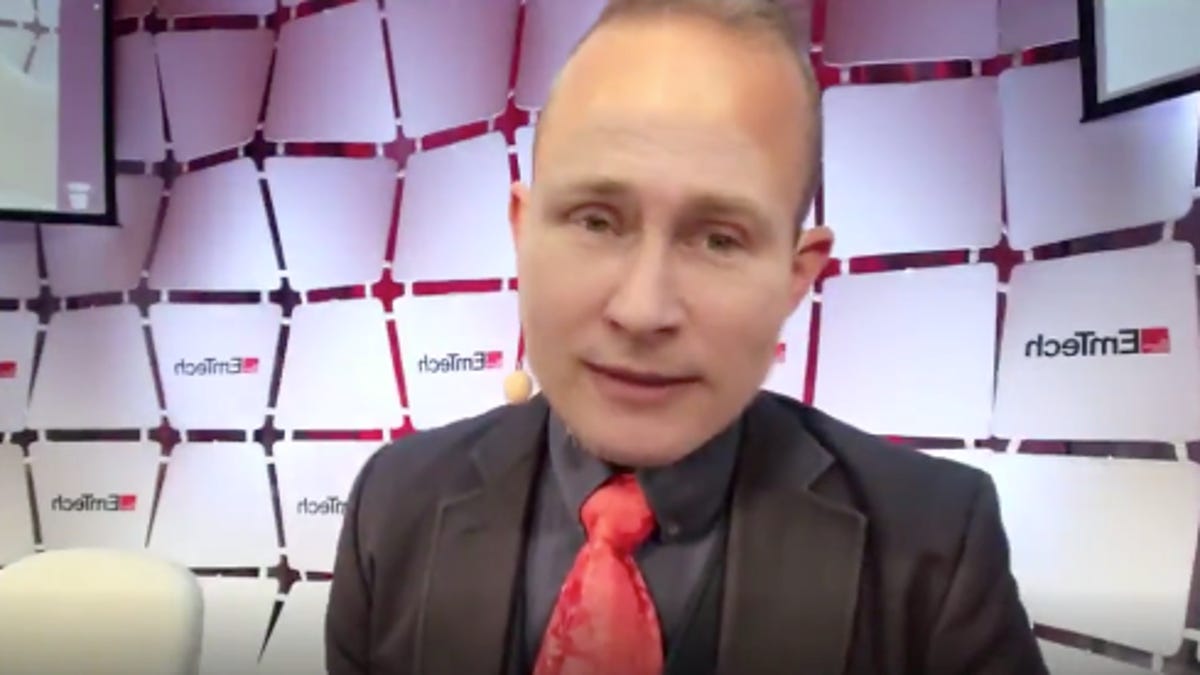See creepy deepfake Vladimir Putin interviewed live at MIT conference
MIT Technology Review editor shows off deepfake tech that can be used in real time. Hope you speak Russian.

MIT's deepfake Vladimir Putin.
MIT showed off deepfake technology Wednesday that can be used in real time. During its EmTech conference, MIT Technology Review Editor-in-Chief Gideon Lichfield conducted an interview with deepfake " Vladimir Putin " on stage. A video tweeted by the publication shows Lichfield asking questions and then ducking into a booth to respond as a deepfake Russian president.
Deepfakes, video forgeries that make people appear to be doing or saying things they didn't, are the moving-picture equivalent of bogus images created with programs like Photoshop. Deepfake software has made manipulated videos accessible and increasingly harder to detect as fake.
"This is the deepfake of @glichfield interviewing Vladimir Putin (wink wink nudge nudge)," Tech Review tweeted Wednesday.
This is the deepfake of @glichfield interviewing Vladimir Putin (wink wink nudge nudge). #EmTechMIT pic.twitter.com/PHoFV2iTPH
— MIT Technology Review (@techreview) September 18, 2019
The video shows Lichfield's face being transformed with Putin's facial features as he responds in Russian to questions on Russian interference in the 2020 election. It's not the most convincing deepfake, but it shows how the technology is developing rapidly.
MIT's EmTech conference is being held at its Media Lab -- which has come under fire recently for accepting donations from Jeffrey Epstein -- in Cambridge, Massachusetts, through Thursday. The conference focuses on the "convergence of technology, business [and] culture."
Congress is investigating deepfakes following the appearance of doctored videos of US House Speaker Nancy Pelosi and amid fears that deepfakes could escalate the fake news campaign during the 2020 US presidential race.
Social media companies like Twitter and Facebook are also coming under pressure to find ways to more quickly detect and remove deepfakes from their platforms, along with abusive content, terror-related content, misinformation and fake news in the lead up to the election.
First published at 11:52 a.m. PT on Sept. 18.
Updated at 2:21 p.m.: Lichfield, not the deepfake, was speaking in Russian
Originally published Sept. 18, 11:52 a.m. PT.

